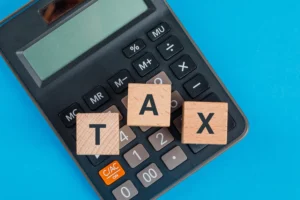Government entities and businesses in the UAE often face challenges dealing with VAT decisions issued by the Federal Tax Authority (FTA). When these decisions seem unfair or incorrect, entities want a way to challenge them. But the process to raise objections or appeals can sometimes remain unclear.
But with the recent Cabinet Decision No. 12 of 2025, the UAE has introduced a clearer, more structured method for VAT objections and appeals through the Tax Disputes Resolution Committee (TDRC). Here, Tax Gian gives you a simple breakdown of what you need to know.
What is the TDRC?
The Tax Disputes Resolution Committee (TDRC) is a body that helps resolve tax-related disagreements between taxpayers and the Federal Tax Authority (FTA). It consists of one judge and two tax experts registered with the UAE Ministry of Justice. The committee listens to objections and issues decisions based on evidence and rules. One can apply to the TDRC on his/her own or with the help of a VAT agent in the UAE.
Who Can Use the TDRC?
Private entities or taxpayers whose tax disputes remain unresolved through the FTA’s reconsideration request process can apply to the TDRC. This is option two, only available if option one fails.
Government entities operating under their sovereign capacity can now follow special procedures when filing VAT objections or appeals. This rule only applies to departments listed under Cabinet Decision No. 58 of 2017. These include federal and local authorities (but not the FTA itself). Entities involved in regular commercial activities must still follow the standard process.
When Can a Government Entity File an Objection?
A government entity can raise an objection with the TDRC if it disagrees with a decision from the tax authority. But they must act fast:
- Submit the objection within 40 working daysafter receiving the decision.
- The objection will be rejectedif:
- A reconsideration request wasn’t submitted first.
- The objection was sent late.
Unlike private businesses, government entities don’t have to pay the disputed VAT or penalties before filing the objection. Get better insights about the matter from VAT agents in the UAE.
What Happens After Submission?
- Once the TDRC gets the objection, it must issue a decision within 20 working days.
- If no decision comes within this time, the objection is considered rejected.
- If the total disputed tax and fines are AED 100,000 or less, the TDRC’s decision is final.
Appeal Process for Government Entities
If the entity isn’t happy with the TDRC’s decision, they can go to the federal courts. But:
- The appeal must be filed within 40 working daysof receiving the decision.
- The entity must pay the disputed VATbefore going to court.
- Administrative penalties must be paid only afterthe final decision from the court.
This setup reduces the financial burden during the early stages of a dispute.
Important Notification Rules
Entities must keep others informed during the process:
- Federal entities should notify the Ministry of Financewithin one week of filing with the TDRC.
- Local entities should notify their Emirate’s finance departmentwithin the same period.
However, if they forget to notify, it doesn’t stop them from filing the objection.
Key Differences from Private Sector Procedures
Let’s look at how the rules differ from those applied to businesses:
| Step | Private Sector | Government Entities |
|---|---|---|
| Before filing objection | Must pay VAT and penalties | No payment required |
| Before appeal to court | Must pay 50% of penalties or give a bank guarantee | Must only pay VAT |
| Penalty payment | Paid before appeal | Paid after final court decision |
These changes give public departments more flexibility and reduce upfront financial strain. Still unclear? Seek expert assistance from VAT agents in Dubai.
Rules for Regular Taxpayers
For businesses and individuals, the TDRC process works differently:
- Objection must be filed within 40 business daysafter FTA’s decision.
- Penalties under objection must be settled in advance.
- A reconsideration requestmust be submitted to the FTA before filing with the TDRC.
- Taxpayers must choose the right TDRC based on their registered address:
- TDRC Dubai – for Dubai
- TDRC Abu Dhabi – for Abu Dhabi and non-residents
- TDRC Sharjah – for Sharjah and other Emirates
- The TDRC gives a decision in 20 working days.
It is recommended to involve a VAT agent in Dubai for better assistance during the process.
How can Tax Gian assist you?
- The application will be prepared and submitted to the TDRC by our VAT specialists in the UAE.
- We can manage any correspondence with the authorities because we are among the leading registered tax agents in the region
- To make sure your case complies with all applicable rules and regulations, Tax Gian puts legal compliance first.
- To support your argument, we will examine the appropriate material.
Our tax advisors in the UAE are qualified to evaluate the particular tax issue and provide tactical advice for resolving it.



